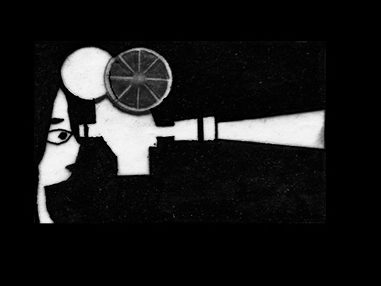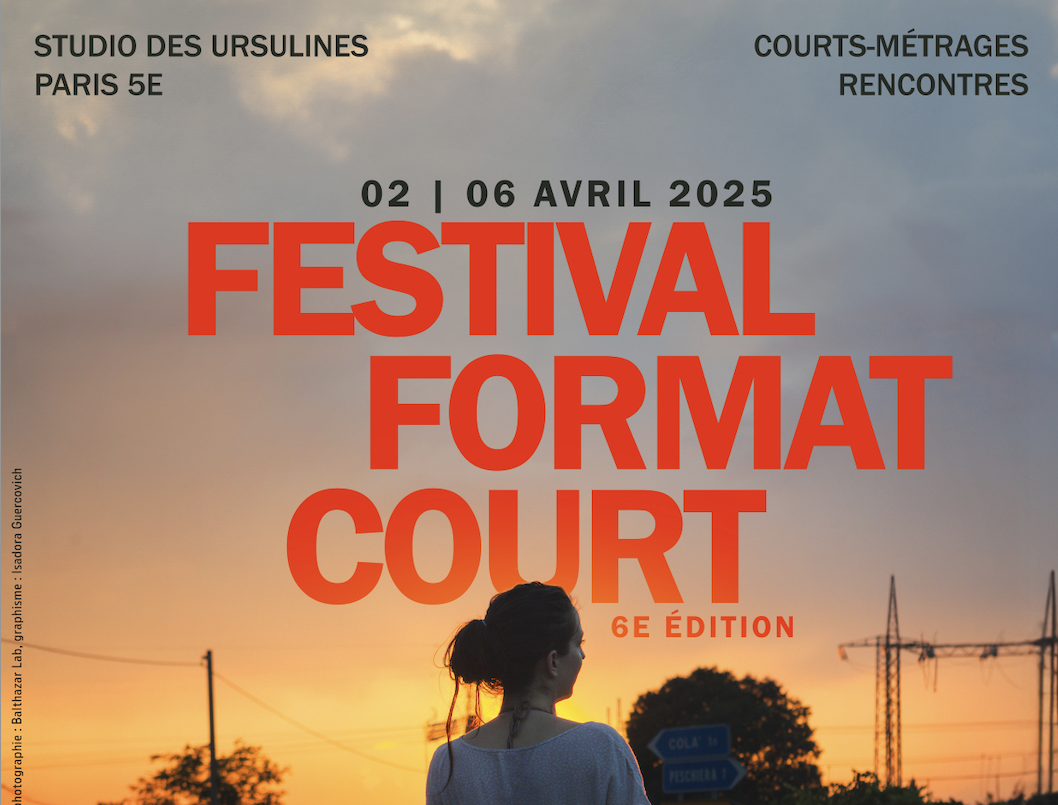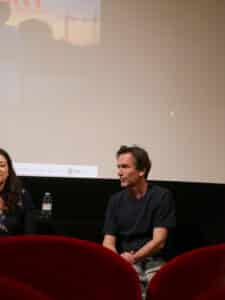Format Court Festival 2025: Short Films, Bold Voices
March 19–24, 2025 – Studio des Ursulines, Paris
The 6th edition of the Format Court Festival confirmed what short film lovers already know: brevity is not a limitation, but a creative force. Held at the Studio des Ursulines, the Parisian festival gathered over 800 spectatorsand 70 professionals around a rich and daring selection of new cinematic voices.
A vibrant and intimate edition
The program included eight screenings (four competitive, four thematic), a masterclass with Boris Lojkine, professional meetings, and the launch of a brand-new writing Lab. With filmmaker Vincent Macaigne as honorary patron, the festival made space for films that are experimental, intimate, poetic—and above all—deeply human.
2025 Award Winners
Grand Prix Format Court
→ Adieu Tortue by Selin Öksüzoğlu (France, Turkey)
A delicate and melancholic story told with subtle direction and visual restraint.
Best Screenplay & Press Award
→ 1 Hijo & 1 Padre by Andrés Ramírez Pulido (Colombia, France)
A powerful narrative navigating between family trauma and psychological tension.
Best Cinematography
→ TAPAGE by Joséphine Madinier (France, Belgium)
A masterful visual composition, playing with contrasts and textures to evoke unease.
Best Sound Design
→ Sous le gel de Glasgow by Léo Devienne, cinematography by Hadrien Vedel
An immersive sonic landscape that reflects the isolation and raw emotion of the characters.
Best Acting
→ Bétina Flender in Une fille comme toi by Nathalie Dennes
A deeply nuanced performance that oscillates between fragility and resilience.
Student Jury Award
→ Mille Moutons by Omer Shamir (France)
A quirky, poetic tale with a unique visual and narrative tone.
Audience Award
→ Chère Louise by Rémi Brachet (France)
A tender and sincere film that touched audiences with its emotional honesty.
Supporting the next wave
Beyond recognition, the festival offers concrete support to emerging creators: professional gear, Harcourt portraits, VOD distribution (UniversCiné, LaCinetek), festival network partnerships and industry visibility. A meaningful springboard for future work.
Boris Lodjkine
Boris Lojkine: From Vietnam to Paris, a Cinema of Presence
Masterclass – Format Court Festival 2025
At the Format Court Festival, French filmmaker Boris Lojkine delivered a powerful and generous masterclass on his creative process. Known for his ability to blend documentary instincts with narrative fiction, he spoke about the essential balance between listening, observing, and storytelling.
Watching, reading, researching
“To write a screenplay, you need to watch films—but also read them,” he opened. For Lojkine, filmmaking begins long before the camera rolls: it starts with rigorous documentary research, collecting testimonies, diving into books, reports, and real-life stories. He describes his approach as a form of cinema-as-investigation, one that demands time, empathy, and patience.
Vietnam: where it all began
Before fiction, there was Vietnam. Between 2001 and 2006, Lojkine directed two intimate documentaries there:
-
Ceux qui restent (Those Who Remain, 2001), exploring the families of Vietnamese soldiers lost in war.
-
Les âmes errantes (Wandering Souls, 2006), a haunting film about relatives searching for the bodies of the disappeared, whose souls are believed to wander without burial.
Shot in deep immersion, these films shaped Lojkine’s relationship to cinema: wait, listen, and never force the real. “I arrived with questions and left with silences,” he said. This ethos still guides his fiction work today.
Ground-level filmmaking
With Hope (2014), Lojkine turned to fiction—but not without groundwork. The film traces the journey of a Nigerian woman migrating through the Sahara. He wrote the script in Paris, informed by NGO reports and media accounts. But when he finally travelled to Morocco for scouting, he realized “everything I’d written was wrong.” Migrant ghettos were organized by nationality, and sexual violence against women was a structural, daily reality—entirely absent from the sources.
That confrontation with the real led to a full rewrite on-site, marking the start of his field-based method.
Camille: bringing fiction into reality
In Camille (2019), he tackled the true story of French photojournalist Camille Lepage, who was killed at age 26 in the Central African Republic. Though the structure is biographical, Lojkine chose to film with non-professionals, surrounding actress Nina Meurisse with locals and real-life locations.
He speaks openly about his discomfort with actor direction, preferring to let the moment emerge than to dictate. “I work by listening,” he said. His films seek to be emotionally truthful rather than technically perfect.
The Story of Souleymane: fiction grounded in truth
With The Story of Souleymane (2024), selected at the Critics’ Week in Cannes, Lojkine’s method crystallized. He began with months of immersion among undocumented delivery riders in Paris before casting or finalizing a script. That’s how he found Abou Sangaré in Amiens, a former unaccompanied minor from Guinea and real-life delivery worker.
Although the script was nearly complete, Sangaré’s personal experience shaped the film’s emotional core. “As a white filmmaker, I wasn’t going to invent the backstory of a young undocumented Guinean man. Abou had lived it.” The result is a film that feels both urgent and intimate.
A striking first-time performance
Lojkine speaks with deep admiration for Abou Sangaré’s performance. With no acting training, Sangaré brought stillness, vulnerability, and inner presence to every frame. “He doesn’t act, he is,” says Lojkine. From the first screen test, his silence had weight.
In the pivotal OFPRA interview scene with Nina Meurisse, it’s not what is said that matters, but what is withheld. Lojkine told him: “As long as you don’t speak, you have the power.” That dynamic turns silence into drama, and stillness into cinema. It’s one of the most powerful scenes in recent French film—not for its volume, but for its truth.
From Vietnam’s hidden grief to Paris’s invisible workers, Boris Lojkine’s cinema gives space to those we rarely see on screen. Through fiction rooted in reality, he carves out a filmic language that is intimate, political, and profoundly human.
The Story of Souleymane is now playing in French cinemas.
Hope, Camille, Ceux qui restent and Wandering Souls are available to stream or screen.



